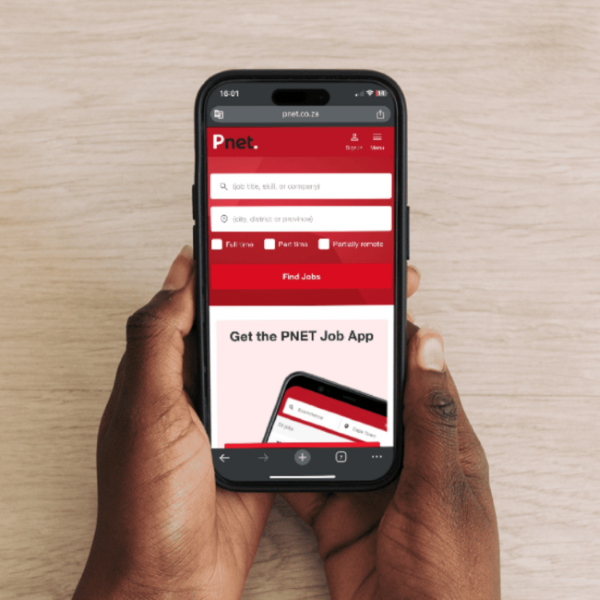Anúncios
Learn how to craft a resume that stands out to recruiters in Africa and helps secure your dream job!

Knowing how to build a resume effectively is a common concern for those seeking professional growth. In South Africa’s market, this step can be crucial.
Every detail on your resume speaks for you, even before the interview happens. That’s why it deserves your full attention.
With so many qualified professionals competing for positions, standing out requires a strategic approach, clarity, and adaptation to the company’s expectations in the region.
If you want to get ahead and secure your spot, check out the demands and opportunities of the African job market and learn how to make your resume shine!
Opportunities and Expectations in the African Job Market
Jobs in South Africa offer great potential, especially for those who are prepared, have a positive attitude, and know how to present their skills effectively.
The market is expanding, with space for tech, healthcare, construction, logistics, and services. But this also requires better-prepared candidates.
Knowing how to build a resume that aligns with the expectations of African companies is the first step to securing the best job offers across various industries.
Employers value clarity, objectivity, and practical skills. A well-crafted resume opens doors and makes it easier to connect with solid opportunities.
Common Mistakes to Avoid in Your Resume
Those seeking jobs in South Africa need more than experience. Avoiding resume mistakes can be the key to landing a great job.
Many still make simple mistakes, such as overloading information or using vague terms, which can hurt that vital first impression.
Knowing how to build a concise, straightforward, and well-formatted resume is one of the most effective ways to demonstrate professionalism.
Another common error is not tailoring the resume to the job. A generic document rarely grabs attention in more demanding and competitive markets.
Step-by-Step to Build the Perfect Resume for the African Market
Anyone looking to land a good job in South Africa needs to stand out from the very first contact. The resume is your official business card.
Mastering the details and following a clear step-by-step process is essential to attract recruiters’ attention.
Choose the Right Language for Your Resume
In South Africa, English is widely used in the workplace despite linguistic diversity across different regions.
Avoid automatic translators. A text full of errors weakens your credibility and could get your resume dismissed quickly.
Building your resume in the right language demonstrates care and market awareness, increasing your chances of landing a good position more quickly.
If you speak multiple languages, you can mention that, but choose one main language to structure the document with clarity and focus.
Essential Personal Information
At the top of the resume, include only what truly matters to employers, like full name, phone with international code, and professional email.
Avoid sensitive data, such as ID numbers, marital status, religion, or age. Aim to present a professional and objective image from the start.
Add your city and province, but there is no need for a full address. This helps recruiters understand your location without invading privacy.
Adding your LinkedIn profile is also a great idea. Keep it updated and aligned with the information in your resume.
Clear and Direct Career Objective
Your career objective should be concise, clear, and closely aligned with the job requirements. Avoid vague phrases or unrealistic, exaggerated promises.
Use a maximum of two sentences. Focus on your area of interest and what you offer, like your skills and goals related to the position.
Example: “Seeking a role in sales, contributing with experience in customer service and a results-driven approach.” Simple, direct, and efficient.
Avoid copying templates from the internet. Be honest but strategic. The objective is a quick snapshot of your professional intent.
Highlight Experience with a Results-Oriented Focus
Start with your most recent roles. Include job title, company name, dates, and, if possible, key accomplishments in that position.
Use action verbs like “coordinated,” “implemented,” “increased,” or “optimized.” These enhance your writing and have a positive impact.
You don’t need to list every job you’ve ever had. Focus on the most relevant experiences that relate directly to the position.
If you’ve never had a job, highlight internships, volunteer work, or any other activity that demonstrates responsibility, commitment, and real skills.
Academic Background and Relevant Courses
List your education from most recent to oldest. Include the institution name, course title, year of completion, and whether it’s ongoing or finished.
Technical, short-term, or certified courses also add value, especially when they match the job’s specific requirements.
There is no need to mention elementary school if you have completed high school or higher education. Focus on what adds value to the recruiter.
If you completed online courses with reputable certificates, add them. They show initiative and a willingness to learn independently.
Valuable Skills and Competencies
Separate technical skills, such as Excel, SAP, and AutoCAD, from soft skills, including proactivity, empathy, and leadership. This helps recruiters read faster.
Prioritize skills that fit the job. Read the job description and highlight those that match the profile the company is looking for.
Don’t make skills just to impress. Be honest and select what you truly master and can back up with real examples.
Mentioning specific certifications or technical training can give you an edge. Digital tools are increasingly appreciated in most industries.
Language Proficiency
Speaking more than one language is a big advantage in South Africa. List the languages you speak and your actual fluency levels.
Use standard terms: basic, intermediate, advanced, or fluent. If you have certifications, include them and highlight them carefully.
Avoid exaggeration. If you only know basic French and can’t write or hold conversations, state it as basic knowledge.
A second language can be a decisive factor between you and another candidate. Value this skill and continue to practice regularly.
Should You Include References?
Only include references if the company requests them. Avoid placing them directly in your resume, as they often take up unnecessary space and are frequently skipped.
If you want to signal availability, write the classic phrase: “References available upon request.” Simple and professional.
Never list personal contacts of former colleagues without permission. This can create awkward situations and damage your image.
When references are needed, choose people with whom you have worked closely and who can confidently vouch for your skills and work ethic.
Resume Design, Layout, and Appearance
Avoid decorations, colorful borders, or fancy fonts. Use a clean layout with proper spacing and fonts, such as Arial or Calibri, for easy reading.
Your resume needs to be visually light and concise. Appearance directly influences how much attention recruiters initially give it.
A visually appealing resume is just as important as content. A professional appearance shows organization and attention to detail.
Always save your resume as a PDF to prevent formatting issues. Proofread for grammar errors, which could ruin your chances early on.
How to Send Your Resume and Where to Apply
Finding a job in South Africa takes more than a great resume. Knowing the best websites to find real opportunities is essential.
Platforms like PNet, Indeed, and Adzuna connect candidates with companies quickly, securely, and efficiently, offering jobs across many industries.
Each site has its strengths. The trick is adapting your profile, using the right keywords, and keeping your resume updated and focused.
Knowing how to build an effective resume and submit it properly boosts your chances. Use these portals wisely and watch for new job alerts.
Tailoring by Industry
In South Africa, landing a job depends heavily on how you present your skills in each specific industry.
Each field has its requirements, values, and competencies. That’s why tailoring your resume to the position is crucial.
Learning how to build a resume that fits your target role helps highlight what matters and shows you understand the job’s demands.
Employers notice when a candidate comes prepared—demonstrating that extra effort can be the final push that secures the interview.
Conclusion
Building a solid resume is the first step to standing out in a promising and competitive market like South Africa.
Each adjustment shows care, commitment, and real interest in the opportunity. These details earn recruiters’ attention.
You don’t need a perfect resume right away, but following best practices already puts you several steps ahead of the competition.
Did you like the tips? Want to know where to find the best job offers? Check out the article below and explore trustworthy platforms to apply in South Africa!
Recommended Content
